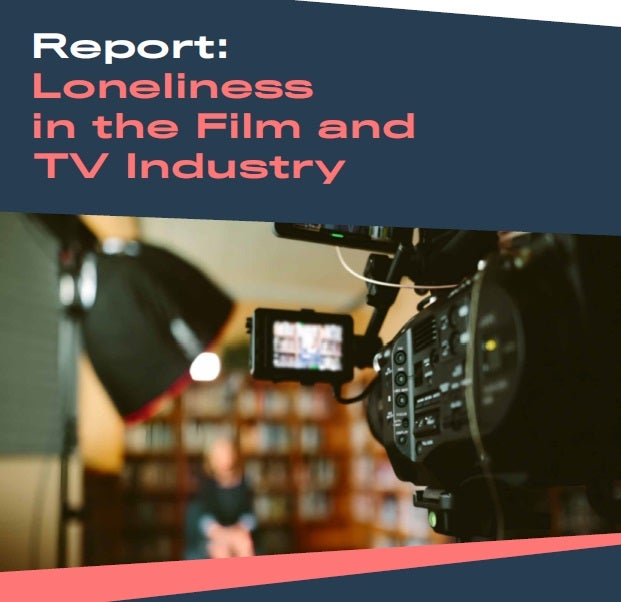Report: Loneliness key driver in poor mental health among freelances

Poor mental health potentially costs the industry up to £400m a year
The Film and TV Charity, in partnership with The Centre for Loneliness Studies at Sheffield Hallam University, has published new research into the relationship between mental health and loneliness.
The study shows that disproportionately high levels of loneliness experienced by people working behind the scenes in film and TV is a key contributor to poor mental health, that potentially costs the industry up to £400m a year, an estimation based on combining 2024 figures from Deloitte and DCMS.
The newly-published report states that loneliness in the industry is often influenced by work-related factors, including but not limited to:
• A culture of long and irregular working hours
• The transient nature of project-based employment
• Industry issues of bullying, harassment, and discrimination
• Persistent stigma around loneliness and mental health at work which prevents people from speaking up and seeking support
• Workers from underrepresented and disempowered backgrounds feeling invisible (especially freelancers, those with disabilities or long-term health conditions, and those who are workless, neurodivergent, from the Black and Global Majority, Muslim, carers, LGBTQ, or from working class backgrounds)
The research makes several recommendations to mitigate the impact of workplace loneliness, including:
• Employers maintaining communication and relationships with freelancers after and between projects
• Measuring and tracking loneliness such as through workplace wellbeing surveys
• The creation of inclusive opportunities for meaningful workplace connections
• Formal ‘buddy’ and peer support systems
Marcus Ryder, CEO at the Film and TV Charity, said: “Today’s findings, which build on research first presented in our 2022 Mind-Craft report, have significant implications not just for the screen sector but for the wider workforce, especially with freelancing becoming increasingly common.
“With the creative industries often described as both the original gig economy and the ‘canary in the coalmine’ for workforce issues affecting freelancers, this research should be of critical significance for policymakers across multiple sectors. It should also act as a catalyst for important work to eradicate stigma around these kinds of conversations to ensure that there’s an industry-wide focus on changing things for the better rather than simply expecting individuals to ‘be more resilient’.”
The Charity’s Looking Glass research, conducted over five years, has consistently shown significantly higher levels of loneliness and poor mental health among behind-the-scenes workers compared with the general population.
The most recent Looking Glass survey from 2024 shows that 35% of respondents reported their mental health as poor or very poor compared to a national average of 18%, with 30% often feeling lonely compared to a national average of only 8%.
Share this Article















